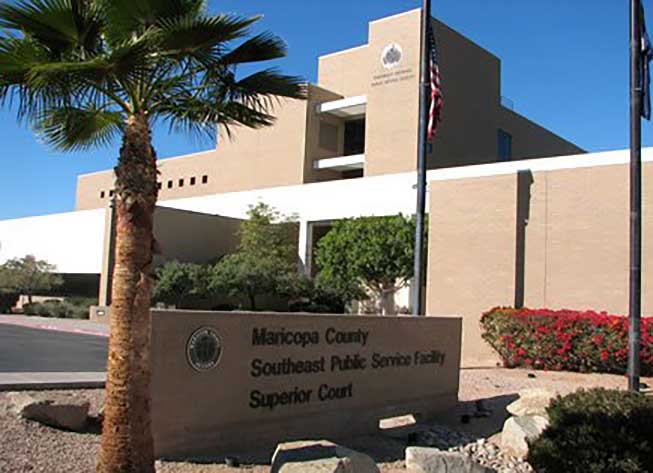Introduction
Determining child custody and support is one of the most important parts of a divorce or legal separation agreement. Unfortunately, it’s also one of the most contested aspects as well, often requiring extensive negotiations and mediation.
Even in amicable cases where both spouses are nearly in agreement, it’s a challenge to ensure the child in question isn’t negatively affected by the divorce or separation. The ultimate goal is to place the child’s needs first, ensure they’re fully provided for, and at least leaving the marriage on equal ground — but that’s never an easy task.
Even after reaching an agreement, the challenge doesn’t end with the court’s child custody order. In many cases, changes in personal and financial circumstances warrant modifying or amending the original agreement. It’s a relatively simple process when both parties are in complete agreement, but that ideal scenario is rarely the case.
Whether you’re negotiating an original child custody agreement as part of your divorce or seeking to modify or amend a court order, it helps to work with an experienced attorney who knows how to navigate the complex legal system. Having a good attorney in your corner is even more valuable if negotiations, mediation, and court hearings are required, as you’ll need an advocate who’s willing to fight aggressively for you and your child’s best interests.
Types of Child Custody Agreements
Child custody cases aren’t as simple as saying who gets the child on which days. In addition to addressing living arrangements, a custody agreement needs to address how pickups and dropoffs are handled, how much input each parent has in important decisions, and each parent’s financial obligation to provide for the child’s needs.
Following is a brief overview of the main parts of a child custody agreement. If you have any additional questions, give us a call at (480) 467-4348 to schedule a consultation and discuss your unique situation.
Parenting Time
In Arizona, physical custody is often referred to as parenting time. Arizona courts strongly believe that children benefit from having a healthy relationship with both parents, so it’s ideal when the custody agreement allows the parents to share parenting time as equally as possible.
Of course, in practice it’s nearly impossible to provide equal time — especially when one parent lives farther away or out of state. In these cases, the goal is to provide a consistent living situation that allows them to perform well in school and extracurricular activities, while allowing for parenting time with the non-custodial parent as much as possible on weekends, holidays, and school vacations.
In addition to addressing a parenting time schedule, a custody plan should also address pickup and dropoff protocol as this often becomes a flashpoint in disputes down the road. Consider addressing topics such as who is responsible for traveling to pick up or drop off, how long you’re obligated to wait for the other parent if they’re not on time, and how you’ll address one-off requests to take the child for special occasions and trips.
Legal Decision-Making
Unlike physical custody that almost always has a custodial and non-custodial parent, legal custody is an opportunity for both parents to equally take part in the child’s important life decisions. With legal decision-making authority, the parents can jointly decide where the child will go to school, what church they’ll attend, and what activities they may participate in.
When healthcare matters arise, legal custody will determine who can make the final call as to which doctor to see, what treatment to pursue, and what surgeries to undergo.
In the vast majority of cases, legal decision-making is shared equally between parents. The only situations where the court may limit a parent’s legal custody are when the parent is convicted of certain felony charges, suffers from alcohol or drug addiction, or is considered a danger to the child (perhaps due to child abuse or domestic violence incidents).
Child Support
Once physical and legal custody are determined, it’s time to calculate child support payments. In most cases, the non-custodial parent is the only one required to make child support payments, as the custodial parent is expected to provide for the child directly (and subsequently be reimbursed for the other parent’s share of expenses via the child support payments).
Calculating child support is an extremely complicated task, as it requires reaching a balance between providing for the child’s needs and not becoming an undue financial burden on the parents. As with determining a custody agreement, it helps to work with an experienced attorney who can guide you through the process and ensure you’re not facing an undue burden.
Meet Our Family Law Team
At JacksonWhite Law, our attorneys deliver a combination of experience and compassion that ensures a truly unique client experience. In short, our family law team has the experience you need for a successful case, and an unrivaled level of compassionate care that makes complicated family disputes just a little easier to navigate.
Tim Durkin
Tim Durkin is the most experienced member of our family law team, having successfully managed cases in every type of family law you can imagine. Tim is able to draw from his depth of experience and is passionate about delivering a level of client care that’s unrivaled in the legal field.
Jon McAvoy
Jon McAvoy is a member of the Arizona State Bar, Family Law section, which exemplifies his passion for helping clients through challenging family law cases. Jon has garnered a reputation for providing aggressive representation with compassionate client service.
JacksonWhite Law’s Mesa Office
Ready to discuss your case with our compassionate family law team? Our office is conveniently located in the heart of Mesa near the intersection of Main and Center Street. Give us a call at (480) 467-4348 , or request an appointment online and we’ll get back to you as soon as possible.
Address: 40 N. Center St, Mesa, AZ 85201
Phone number: (480) 467-4348
Maricopa County Family Court
In Mesa, family court cases take place in the Maricopa County Family Court, which is part of the Mesa Southeast Court Complex.
Address: 222 E Javelina Ave, Mesa, AZ 85210
Phone number: (602) 506-1561
Contact Our JacksonWhite Family Law Attorneys
Reaching a child custody agreement with an estranged spouse is never easy, but it’s much more manageable with the help of an experienced attorney. Whether you’re expecting a simple, uncontested divorce case or a volatile, contested one, you’ll want an aggressive attorney in your corner who’s willing to fight for you and the child’s best interests. Perhaps even more importantly, you’ll need a compassionate attorney who understands the challenges that you’re facing and is willing to help you navigate the emotional pitfalls of the case as well.
If you’re looking for experienced, aggressive, and compassionate attorneys to handle your child custody case, give us a call today at (480) 467-4348 . Our family law team is excited to answer your questions, explain the best course of action, and represent you through this challenging process.
Call the Family Law Team at (480) 467-4348 to discuss your case today.




